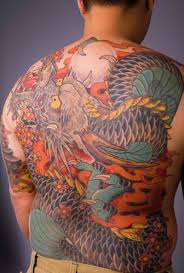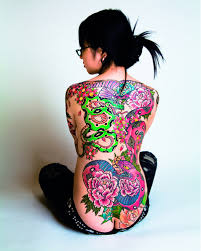
|
|
||||||
|---|---|---|---|---|---|---|---|
|
|
Sunday, April 26, 2009
Marking Pens
Marking pens, also called skin scribes, are surgical marking pens used by doctors to draw scalpel lines on patients. They are non-toxic and are designed to draw right on the skin. It is not good practice to just draw a tattoo design on the body, since mistakes and changes are going to occur. Better to rework the design beforehand on paper and to transfer it with another method. The only reason the skin scribe is mentioned here is that it is a useful tool for touchup work, alterations or additions to a design already on the body. For this purpose, it is always handy to have a few ready for when you need them.
Tattoo pictures: Good portraits
More tattoo pictures: Two of the same portrait in arms of different persons. A very good quality of this tattoo design.
Tattoo Business Procedures
Just in case you don’t think you can handle all this on your own, employ the services of a good local attorney. He will always know people in the right places and whom to contact for the information you require. Let him do the leg work, after all, that’s what you will be paying him for and he won’t get the run around as you might get in some instances.
Always keep a receipt for all of the work that you do. Even for the smallest tattoo or whatever services you render. Remember that you are self-employed and you have to pay taxes. A course on bookkeeping would be practical in addition, just to keep your head on straight. There are a lot of deductions a business person can legally make, and one book on small business and another on tax information (from the I.R.S.) is a must. You have to know what you are doing here. It is not as complicated as you might think, but it is absolutely necessary to understand these things if you are going to survive as a self-employed business person.
One more thought about insurance. Today is the day of the lawsuit. People are very excited about getting a tattoo and will brag about them and pay large sums of money for them. But if something ever goes wrong, these same people will not give it a second thought to turn around and sue you right out of business. Some type of thought should be given to protect yourself from this ever happening. This type of protection is called the “trade release form.” This is a legally binding piece of paper between you and your customer, waiving any kind of responsibility on your part for damages or lawsuits of any kind after they leave the shop. It must be signed before you commence tattooing. An example of such a sheet is included at the end of this chapter. It should not be directly copied, it is just an example. Since it is such a great legal document, it is up to the tattooist and his lawyer to make one up. The price paid for this paper is worth it. Once made up, it will last you forever. Just have them copied or printed in quantities. Basically, the release form will cover topics like age and physical requirements, it will release you from liability from lawsuits and damages after the visit and anything else you and your lawyer can think up to protect yourself and keep yourself covered at all times. If a person takes one step into your shop and trips and falls and chips his teeth, you just might be liable (this even before the signing of the release). A sign “Enter at your own risk” in front of the store is at least some kind of coverage releasing you from a possible lawsuit. This kind of “insurance” is a must to have, but remember, it still does not release you from your responsibility. You owe it to everyone to do your best. You must ioW.ow ail the procedures in this site such as bandages and sterilization techniques and it is your responsibility to see to it that you perform them.
Being in tattoo bussines also has great benefits
Along this line of thought is another form of policy called the “care sheet.” This is made up by you and handed to every customer after they receive a tattoo. Just you telling them about the after care and a big poster in front of the chair outlining the steps is not enough. (Which you ought to have anyway.) You must make up a sheet with each step printed on it explaining the care of a tattoo and the customer’s responsibility in taking care of it. This is important because the healing is critical in the quality of the tattoo and the health of the customer. Every precaution should be taken to ensure that they do this. An example of a Care Sheet can also be found in the end of the Chapter on Bandages. Study it carefully, and add anything else that you may feel is important. I certainly would not subtract from the information though. It is advisable to post a notice in a prominent area of the shop stating that you don’t tattoo people who are afflicted with sugar diabetes (they are prone to infection and heal poorly, or not at all). It also won’t hurt to include hemophiliacs on the same notice. Such a notice will provide you with some more legal protection.
Being in business for yourself has great benefits. One of these is that you are your own boss and you are responsible for making the money. In other words, you are writing your own check. But, just like an hourly wage, in the business world, time is money and time means money. You never want to be in a position where you are unnecessarily holding yourself up or finding yourself doing things twice. This costs you money or will keep you from making more money, and believe me, this is not professional.
What makes a good tattoo artist
by Marie Gerber
For many people, getting a tattoo is a big decision and one that shouldn't be rushed. Despite advances in laser technology, a tattoo is generally still thought of as a permanent alteration to your body and you will most likely regret a rushed decision in the years to come. There are many things to consider before getting inked, such as choosing a design that is meaningful to you and that you will continue to appreciate through all the different phases of your life. The location of the tattoo is also important, especially depending on the nature of the design and your future career goals. A tattoo that is highly visible even in everyday clothing or work wear may hinder your success in many career fields, especially if the design could be interpreted as offensive or inappropriate. This is unfortunate and does not hold true for everyone or every career, but it is a very real concern.
However, probably the most important factor in your decision to get a tattoo is your choice of tattoo artist. Not every tattoo artist is the same and you want to do your research before its too late. So, you might ask, what makes a good tattoo artist?
A good tattoo artist
is an experienced tattoo artist. Experience is one of the most important factors in what makes a good tattoo artist. Learning to operate a tattoo machine isn't easy and you want someone who has mastered the art, not someone who is just beginning. There are many tattoo artists out there who are extremely talented when it comes to pen and paper or paint and canvas, but drawing on human flesh with a tattoo machine is an entirely different skill, one which takes time to master. Of course, on the other hand, there are people who are masters at operating a tattoo machine, but who aren't necessarily talented artists.
When checking out potential tattoo artists, the most important thing that you can do is to ask to view an artist's portfolio. In my experience, most tattoo studies will typically have the artists' portfolios on display in the lobby area, or even online, but if not, don't be afraid to ask for examples of their work. By examples, I mean photographs of actual tattoos that they have applied onto skin, not artwork done on paper or other surfaces. And you can't make an educated decision from looking at just a few photographs. If the artist doesn't have a large body of work for you to review, then they are probably inexperienced and you should take this as a sign to move on to the next shop.
You should also ask them how long they have been tattooing. If they have just completed their apprenticeship or are still in the process of completing it, they most likely aren't going to give you a high quality tattoo. Some people will opt to have their ink done by an apprentice because it is usually significantly cheaper than what an experienced artist would charge. However, in this case, you need to remember that a tattoo is permanent and it is well worth the extra cash to have a design that you can be proud of for many years to come.
Also, every tattoo artist will have their own unique style and you should base your choice on whether their style will work well with your design. This is another reason that it is so important to check out various portfolios before making your decision. Does the artist work primarily in black and white or color? Does the artist have a realistic style or more of a cartoon/comic book style? Does the artist tend to work big or small and detailed? Some artists are better at lettering than others. Ask them whether they work from stencils or draw free-hand. Some very experienced artists can create amazing results drawing free-hand, but most artists need a stencil as a guideline.
is a clean tattoo artist. A good tattoo artist will strictly follow all the appropriate safety guidelines and will keep their shop clean and their equipment sanitized at all times. You wouldn't let a surgeon operate on you with a dirty scalpel and you shouldn't let a tattoo artist anywhere near you with an unsanitized needle. The tattooing process involves penetrating one of your body's main protective barriers your skin. There are very real risks involved, including bacterial infections and the transmission of blood-borne diseases, such as hepatitis and HIV. Allergic reactions and skin disorders are also possible risks, but are more likely to result from your bodies reaction to the ink than from unsanitized equipment.
So, how do you know if a tattoo studio is a sterile environment? First, pay attention. The general cleanliness of the shop, including the condition of the waiting area can be a good indication of the artists' regard for cleanliness and sanitation in their work area.
While some studios do have enclosed rooms or booths, in many establishments the artists work out in the open where you can observe their safety habits. Watch to see if the artist washes their hands and puts on a fresh pair of latex gloves for each procedure. If the artist is
interrupted during the tattooing process and handles any other object, such as a telephone, they should put on a fresh pair of gloves before continuing the tattoo.
Also, watch to see that the artist removes the needle and tubes from a sealed package, so that you know for a fact the needle is sterile. All inks, trays and other containers should also be unused.
You should also ask the artist whether or not they use an autoclave machine. An autoclave is a machine that uses heat to sterilize all equipment that isn't disposed of after each customer. Any instruments or surfaces that can't be sterilized using an autoclave, such as drawer handles or sinks should be thoroughly cleaned with a commercial disinfectant. If the owner or artist seems annoyed by your questions, then it's time to say good-bye. An owner/artist should take pride in the cleanliness and safety-habits of their shop and should be more than willing to discuss any of your concerns. Finally, while being observant and asking lots of questions is important, you should also pay attention to your gut. If the shop appears clean and the artist answers all of your questions satisfactorily, but you still have a bad feeling about the place, don't feel guilty that you've wasted the artist's time. If it doesn't feel right, it's not the right place for you.
is an honest tattoo artist. Unfortunately, some tattoo artists are only interested in your money, and will keep their mouth shut if they think that the design or the body part you have chosen will not look good or will not hold up well over time. A good tattoo artist takes pride in their work and wants you to leave their shop with the best possible result. After all, tattoo artists obtain much of their business via word of mouth and they can't afford to have unsatisfied customers. A good tattoo artist can also sense when a tattoo is a spur of the moment decision which a customer might regret even a few hours later and will ask you to come back in a few days if you still want to get inked. Finally, a good tattoo artist will not ink someone who is intoxicated.
is a reputable tattoo artist. As I mentioned before, a tattoo artist obtains much of their business via word of mouth, so reputation is very important. Ask your friends or acquaintances where they got their tattoos and what they have heard about specific artists or shops. If you hear even one horror story about a particular shop, you have reason to be weary. However, word of mouth is no substitute for your own thorough research.
























